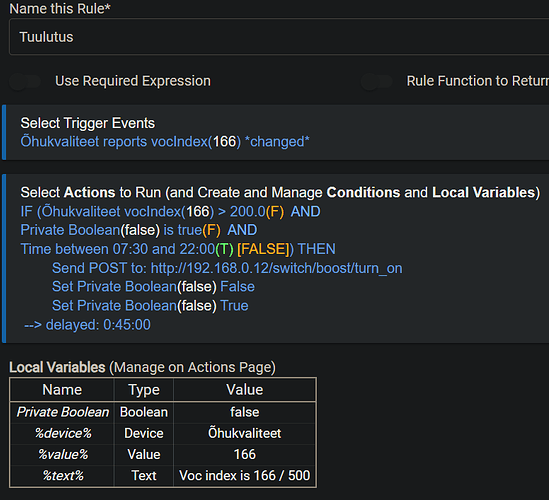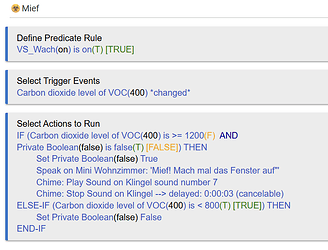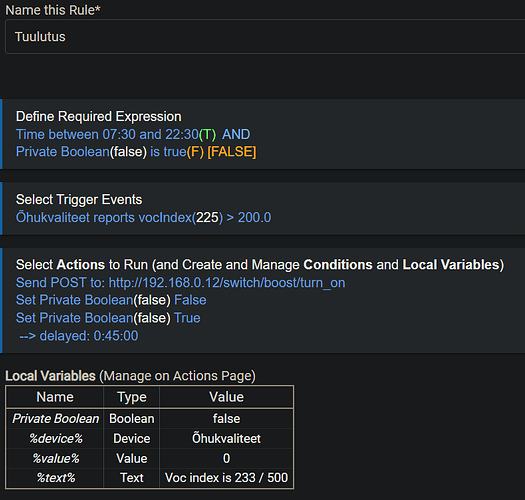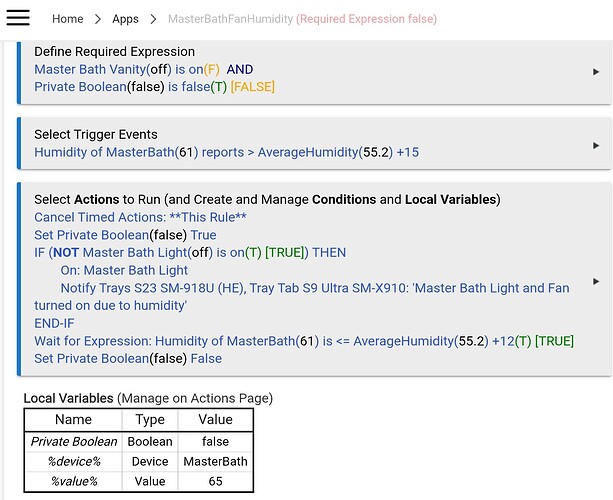So, firstly, not sure what you are trying to accomplish with the private boolean. If the goal is to prevent it from having multiple triggers, then you should have it as a required expression instead of within the body. When it is used, the FIRST action should be to set it false. The location you have it set at does nothing. It sets it false and then immediately sets it back to true.
Secondly, by the same nature, the time between statement would be more approprate in the required expression.
Required expressions prevent the rule from even running if the conditions aren't met.
So, required expression of Private Boolean = False AND your Time Between statement.
Then set your trigger. If changed is causing too much load, it might be more appropriate to put the level in the trigger.
First Action, Cancel timed actions and set Private boolean to true. This cancels any instances of the rule that might be already running and then prevents the rule from being retriggered until it has run and the boolean is changed back.
Then, complete the actions you actually want. i.e. Turn on the switch with the post command.
Not sure what you intended with the delay. But, the way it is written, you are waiting for 45 minutes for some reason. If that is a delay to turn it back off, you never told it to turn off. It looks like your whole if statement is delayed. And since there is no required expression to prevent multiple triggers, you are flooding the switch turn on action and the rest of the if block it is tied to. It might be better to use a similar condition as the trigger to turn off the switch. In this case it would be a "wait for" the value to drop below some value (that is below your trigger). Then, at the end of the rule, set the private boolean back to true so it can run again.
See a similar rule I did for turning on the fan in the bathroom when the humidity is too high. In mine, I require the light in the bathroom to be on (meaning someone has turned on the light and is likely in the room) along with the private boolean to prevent the rule from even running.
Then when humidity is too high, I have it check to make sure the light/fan switch is not already on. If it is not, then, it turns on the light/fan and sends a notification.
Then it waits for the humidity to return to a lower level, turns off the fan, resets the private boolean, and exits.






